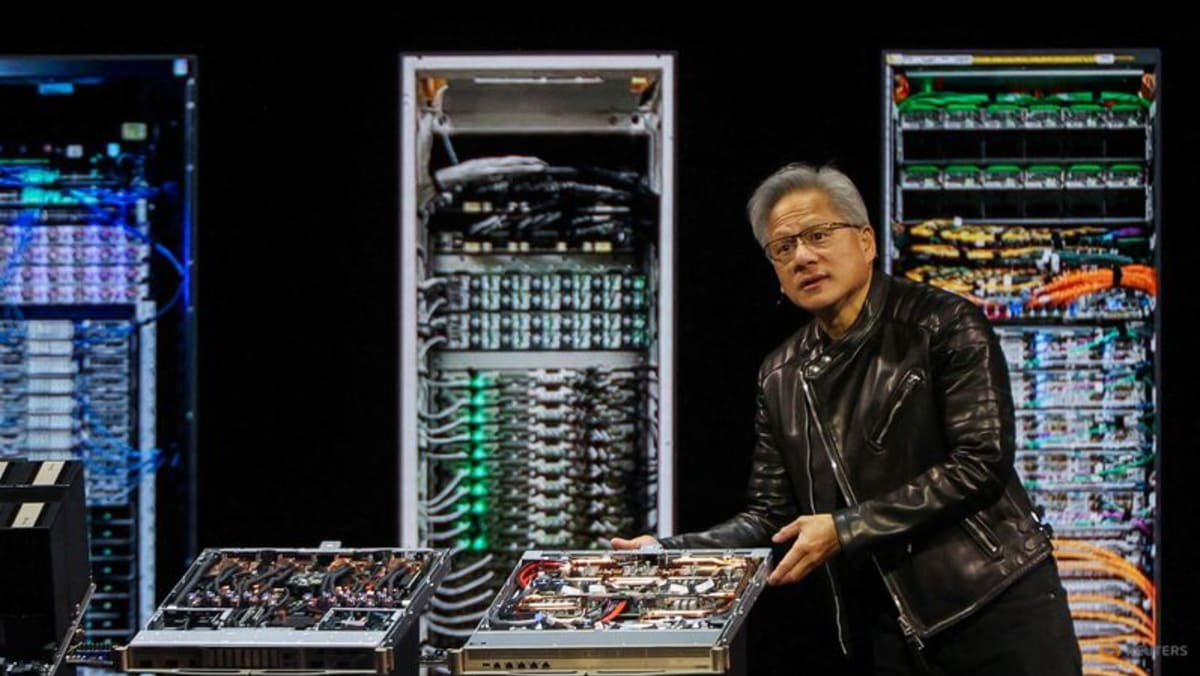WASHINGTON: Nvidia’s planned resumption of sales of its H20 AI chips to China is part of US negotiations on rare earths, Commerce Secretary Howard Lutnick said on Tuesday (Jul 15), and comes days after its CEO met President Donald Trump.
“We put that in the trade deal with the magnets,” Lutnick told Reuters, referring to an agreement Trump made to restart rare earth shipments to US manufacturers. He did not provide additional details.
Nvidia said late on Monday that it is filing applications with the US government to resume sales to China of its H20 graphics processing unit, and has been assured by the US it will get the licences soon.
The planned resumption is a reversal of an export restriction imposed in April that is designed to keep the most advanced AI chips out of Chinese hands over national security concerns, an issue that has found rare bipartisan support. It drew swift questions and criticism from US legislators on Tuesday.
The decision “would not only hand our foreign adversaries our most advanced technologies, but is also dangerously inconsistent with this Administration’s previously-stated position on export controls for China”, Democratic Representative Raja Krishnamoorthi, ranking member of the House of Representatives Select Committee on China, said in a statement.
Republican John Moolenaar, chair of that committee, said in a statement he would seek “clarification” from the Commerce Department.
“The H20 is a powerful chip that, according to our bipartisan investigation, played a significant role in the rise of PRC AI companies like DeepSeek,” Moolenaar said, referring to a Chinese startup that claims to have built AI models at a fraction of the cost paid by US firms such as OpenAI.
“It is crucial that the US maintain its lead and keep advanced AI out of the hands of the CCP.”
Shares of Nvidia, the world’s most valuable firm, closed up 4 per cent and were nearly unchanged in after-market trading. Nvidia had estimated that the curbs would cut its revenue by US$15 billion.
Nvidia’s plan to resume sales has set off a scramble at Chinese firms to buy H20 chips, two sources told Reuters.
The chips that Nvidia will resume selling are the best it can legally offer in China, but lack much of the computing power of the versions for sale outside of China because of previous restrictions put in place by Trump’s first administration and then President Joe Biden’s administration.
But critically, H20 chips work with Nvidia’s software tools, which have become a de facto standard in the global AI industry.
CEO Jensen Huang has argued that Nvidia’s leadership position could slip away if the company cannot sell to Chinese developers being courted by Huawei Technologies with chips produced in China.
The significance of the shift depends on the volume of H20 chips that the US allows to be shipped to China, said Divyansh Kaushik, an AI expert at Beacon Global Strategies, a Washington-based advisory firm.
“If China is able to get a million H20 chips, it could significantly narrow, if not overtake, the US lead in AI,” he said.
